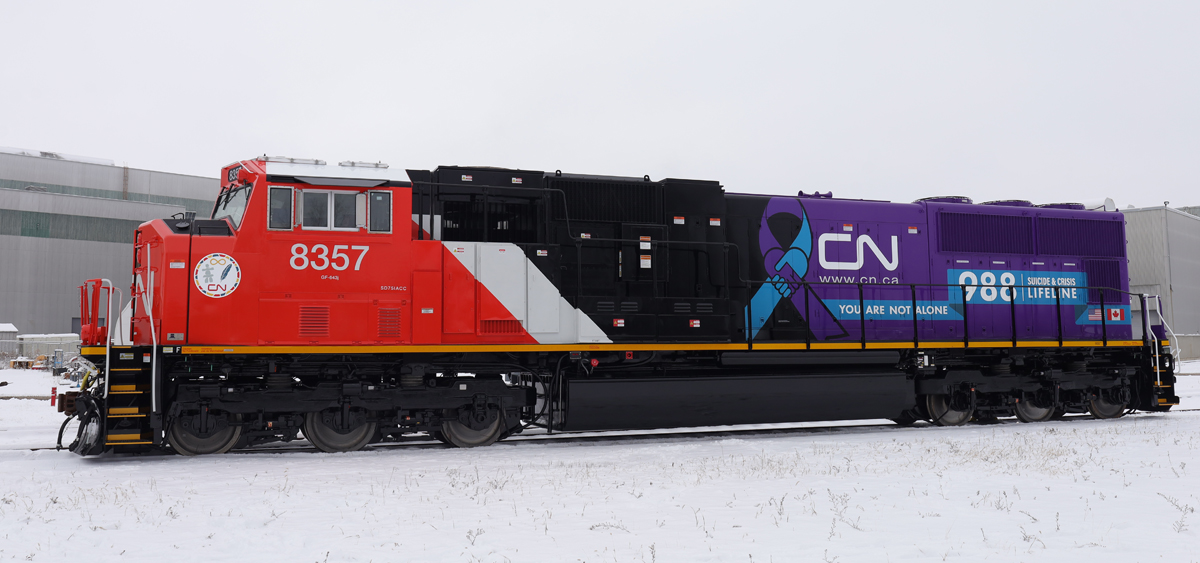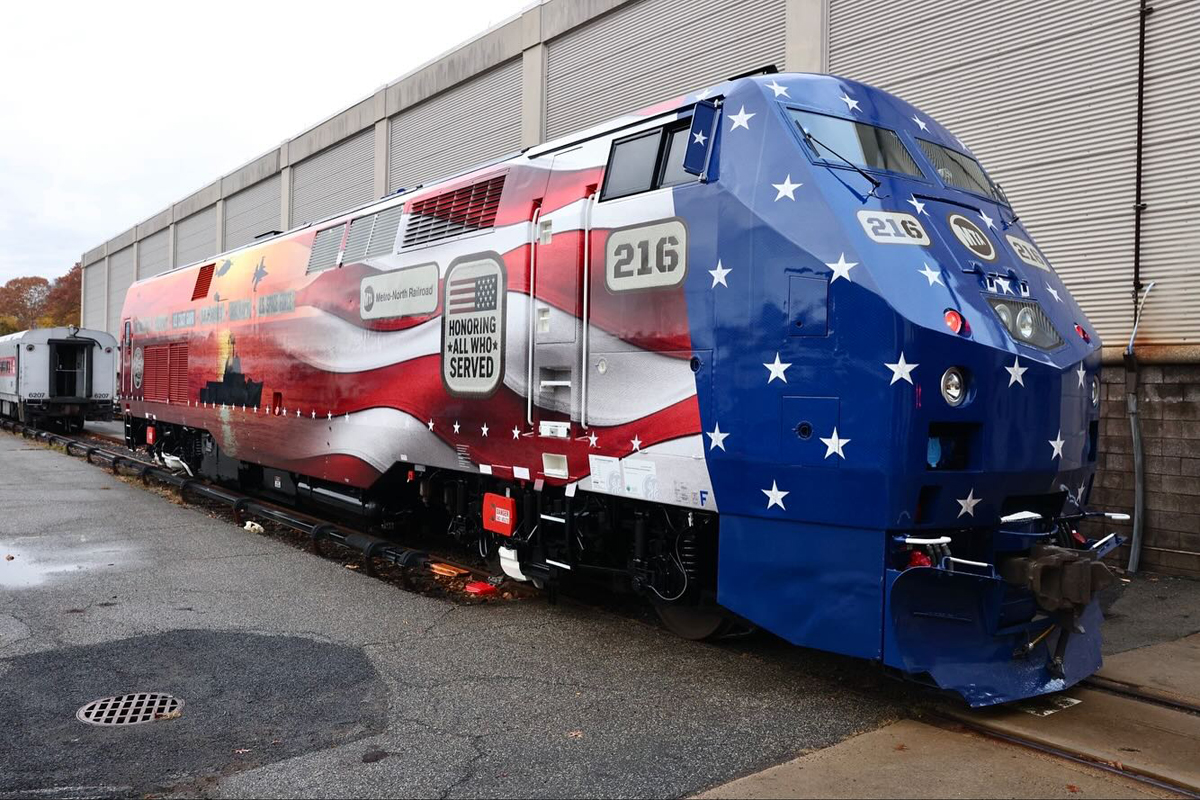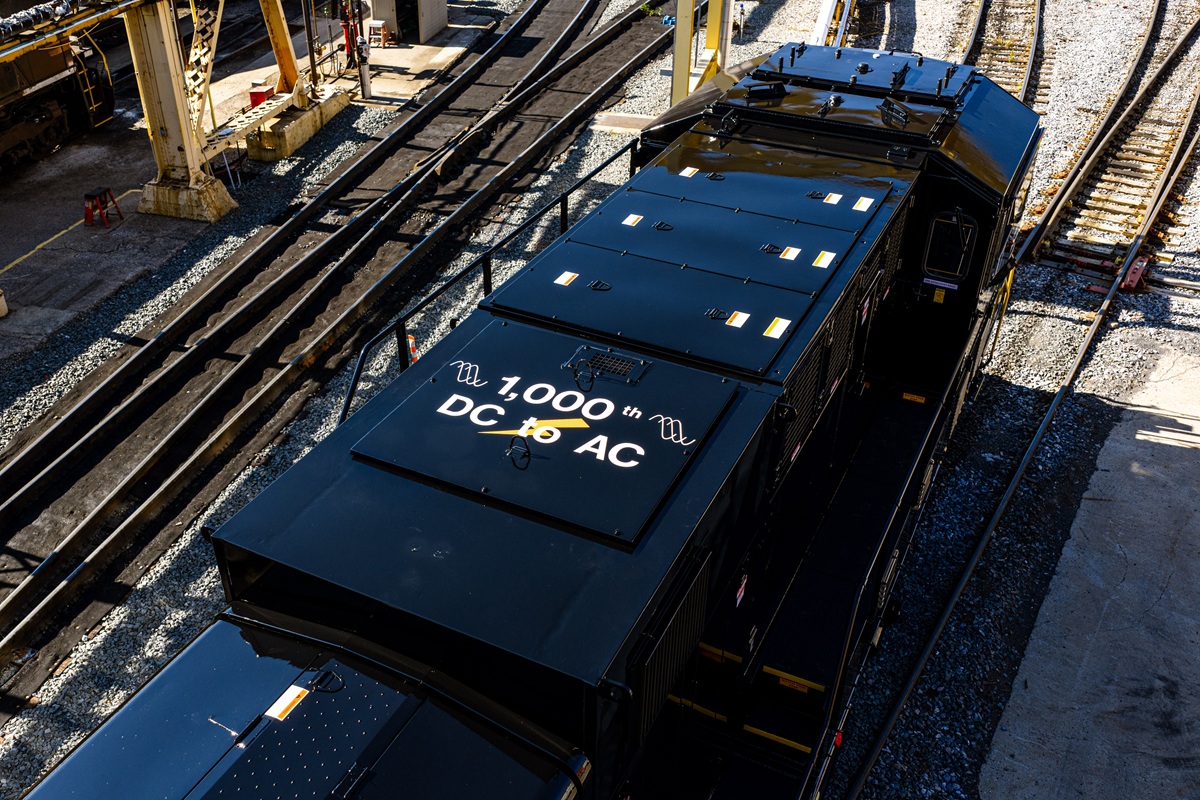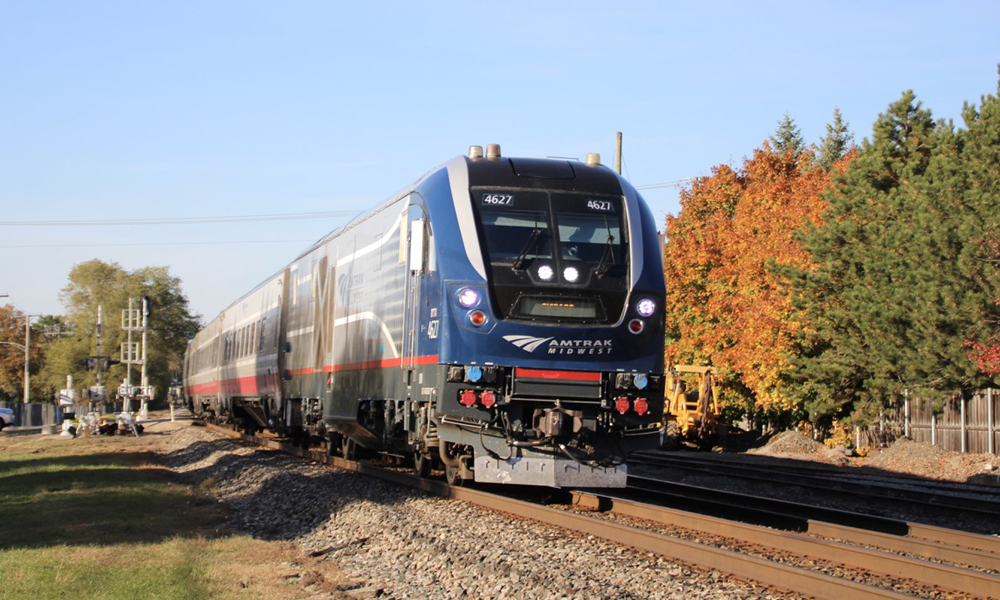
BOSTON — The Massachusetts Bay Transportation Authority and its contract operator, Keolis Commuter Services, have begun a pilot program using renewable diesel fuel for some locomotives on the MBTA commuter rail network.
The program, announced earlier this week, involves locomotives that layover at Newburyport, Mass., facility at the end of Newburyport branch on the MBTA’s Newburyport/Rockport Line. Those locomotives are now fueled with Hydrotreated Vegetable Oil, a sustainable alternative made with vegetable oil and animal fats that emits less carbon than conventional diesel fuel.
“We’re pleased to partner with Keolis on this renewable diesel pilot as we continuously seek ways to reduce our carbon footprint,” MBTA CEO Phillip Eng said in a press release. “Testing alternative fuel sources for our commuter rail fleet joins other efforts at the T to lower our carbon emissions, and we look forward to evaluating the results of the pilot as we continue to increase resiliency across the system.”
Keolis CEO Abdellah Chajai said the program “can reduce CO2 emissions by more than 70% for these locomotives compared to fossil diesel. We’re pleased to partner with the MBTA to make this pilot project a success.” So far, Keolis reports, locomotive performance has been steady with the new fuel.
So far, Keolis has seen steady locomotive performance with the use of renewable diesel. At the end of the pilot program, Keolis and MBTA will evaluate the performance of the renewable fuel and decide if it can be expanded to other locations across the Commuter Rail system. The length of the pilot program was not specified.
A number of passenger and freight operators have experimented with or are currently using biodiesel and renewable fuel, including Amtrak’s Pacific Surfliner; commuter operators Altamont Corridor Express and Metrolink; Canadian National; Union Pacific; and BNSF.














Photo shows one impressive double-track lift bridge. As it’s 50 years since last rode that train (or for that matter, that same time since I’ve been anywhere in Essex County) it seems from the picture the bridge a lot newer than fifty years. Does anyone know when it was built or rebuilt?
Not familiar with Beverly (or much of anywhere on the former B+M), I looked at a map. The photo looks south from Beverly down toward Salem. Both branches, Newburyport (north) and Gloucester/ Rockport (northeast) use that bridge — the junction of the two branches is in Beverly. FWIW the body of water is the Danvers River.
They should electrify the equipment on the N.E.C. too! A lot more work but I think worth it in the end. Someday, maybe!
What is this now, 25 years or so since wires went up? Still no date for electric locos.
The General Court (state legislature) has at least twice passed legislation for more electrification …. MBTA doesn’t run electrics where the wires exist.
We get filtered deep fry oil from restaurants, burns very well with little exhaust smoke in the Mercedes diesels, and smells like an American Legion Friday fish fry dinner.
How does burning vegetable oil and animal fats emit less carbon than burning petroleum? I never took organic chemistry, but seems to me either way, it’s combining carbon and oxygen, to get heat plus carbon dioxide. Something like that.
Charles, as you state, emissions coming from the stack, in the form of CO2, would be approximately the same. The difference is this: 1) when the fossil fuel is burned the carbon being emitted comes from deep underground where it has been sitting for millions or even hundreds of millions of years, and the result is a net increase in the total amount of CO2 in the atmosphere in the present time; 2) the renewable fuel is made from plants that drew CO2 from the atmosphere fairly recently (a year or so perhaps) and the result is NO NET INCREASE in the total amount of CO2 in the atmosphere averaged over the cycle (the animal fats are produced from feeding on plants, so it’s all from plants practically speaking).
JEFFREY — Thanks for the note. Very informative and I learned a lot.